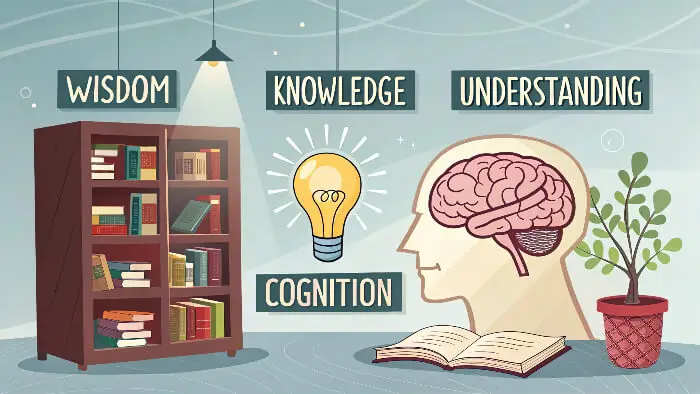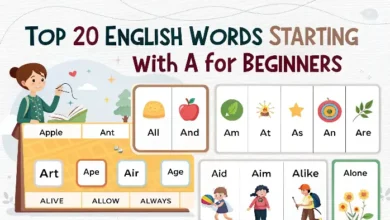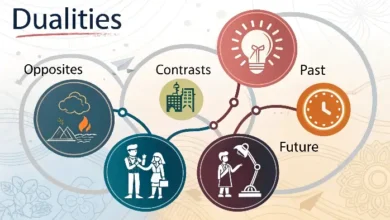Exploring Synonyms for ‘Intellect’ and Their Nuances in Language

Exploring Synonyms for ‘Intellect’ and Their Nuances in Language
The term “intellect” is a broad and powerful word used to describe the capacity for thinking, reasoning, and understanding. It is often associated with intelligence and the ability to acquire knowledge.
However, the concept of intellect can be broken down into various shades of meaning, and there are many synonyms that reflect different aspects of intellectual abilities.
Understanding these synonyms can help you expand your vocabulary and communicate more effectively by choosing the right word for the context.
In this article, we will explore the different synonyms for “intellect” and delve into the nuances of their meanings. This will help you grasp the various dimensions of human cognitive abilities and how to use these terms appropriately in different situations.
What Does ‘Intellect’ Mean?
Before we explore synonyms, let’s define “intellect”. The word refers to the ability of the mind to reason, understand, and gain knowledge. It encompasses the mental faculties used in thinking, problem-solving, and acquiring wisdom. People often associate intellect with academic abilities, critical thinking, and logical reasoning. However, it also includes creativity, insight, and emotional intelligence in various contexts.
For example:
- “Her intellect was impressive, solving complex mathematical problems with ease.”
- “His intellect shone in philosophical debates, offering profound insights into life and existence.”
While intellect generally refers to cognitive ability, it can also encompass an individual’s capacity for learning, understanding abstract concepts, and processing complex information.
Exploring Synonyms for ‘Intellect’ and Their Nuances in Language
Synonyms for ‘Intellect’ and Their Nuances

- Intelligence
Intelligence is the most direct synonym for intellect. It refers to the ability to acquire knowledge, solve problems, and adapt to new situations. Intelligence can be more general and often describes a person’s ability to learn and apply knowledge in various situations, from everyday life to academic and professional challenges.
Example:
- “His intelligence helped him excel in every subject, from mathematics to literature.”
While intellect often refers to deep thinking and reasoning, intelligence is sometimes associated with quick thinking, learning, and practical problem-solving. The two terms are closely related but can be used differently based on context.
- Wisdom
Wisdom is a synonym for intellect, but it carries a deeper connotation. While intellect refers to the ability to think and reason, wisdom involves the judicious application of knowledge gained through experience. It is not just about intellectual capacity but also about using one’s knowledge to make sound, ethical decisions.
Example:
- “His wisdom in handling delicate situations made him a trusted advisor.”
Unlike intellect, which is more focused on mental processing, wisdom reflects maturity, experience, and the practical application of knowledge in real-world contexts.
- Reasoning
Reasoning refers specifically to the mental process of drawing conclusions, making judgments, and solving problems logically. It involves the capacity to analyze and evaluate situations and arrive at decisions based on logic and facts. Reasoning is a critical component of intellect, as it is the process by which we use our mental faculties to make sense of the world around us.
Example:
- “Her reasoning skills were unparalleled, and she was always able to find the best solution.”
Reasoning can be thought of as one of the fundamental components of intellect, especially in terms of problem-solving and logical thought.
- Acumen
Acumen refers to keen insight or sharpness in understanding and judgment, particularly in specific areas. It indicates a person’s ability to make quick, accurate decisions based on their deep understanding of a subject. Acumen often pertains to specialized areas such as business, finance, or strategy, but can apply to any field requiring acute perception and decision-making.
Example:
- “Her business acumen helped her launch a successful startup.”
While intellect is more general, acumen highlights specialized, sharp decision-making in a specific area.
- Insight
Insight refers to the ability to understand people, situations, or concepts in a profound and intuitive way. It involves a deep understanding that often goes beyond surface-level knowledge and reflects an ability to perceive the underlying truth of complex issues. Insight can be seen as a subset of intellect, focusing more on the ability to see beyond the obvious and grasp hidden patterns.
Example:
- “His insight into human nature made him an excellent psychologist.”
While intellect involves a broader range of thinking, insight emphasizes a deeper understanding of complex or subtle aspects of a situation.
- Brilliance
Brilliance refers to exceptional intellectual ability, often associated with extraordinary talent or genius. It is typically used to describe someone who demonstrates outstanding creativity, problem-solving skills, or innovation in a particular field. Brilliance implies not only intelligence but also the ability to stand out in the field of intellectual achievement.
Example:
- “Her brilliance in mathematics led to groundbreaking discoveries.”
While intellect is a more general term, brilliance conveys an elevated level of intellectual achievement, often associated with groundbreaking work.
- Creativity
Creativity is another synonym that is closely related to intellect. It refers to the ability to generate new, original ideas and think outside the box. Creativity involves not only intelligence but also the ability to combine existing knowledge in novel ways, whether in art, science, or problem-solving.
Example:
- “His creativity in developing new technologies revolutionized the industry.”
While intellect often refers to reasoning and knowledge, creativity emphasizes the generation of innovative ideas and solutions.
- Cognitive Ability
Cognitive ability is a broad term that refers to the mental processes involved in learning, memory, reasoning, and problem-solving. It encompasses various mental skills that contribute to intellect, including attention, memory, and executive functioning. Cognitive ability refers to the overall mental capacity that underpins an individual’s intellectual performance.
Example:
- “Her cognitive abilities allowed her to process and retain information quickly.”
While intellect is a more general term, cognitive ability specifically highlights the mental processes involved in acquiring and using knowledge.
- Mind
Mind is another synonym for intellect, but it is more inclusive, referring not just to intellectual ability but also to the totality of mental faculties, including memory, emotions, and consciousness. Mind is often used to describe a person’s overall mental state or processes, including both conscious and unconscious thought.
Example:
- “His mind was sharp, and he could easily learn new languages.”
Mind is a more general term that encompasses all mental faculties, while intellect is specifically concerned with reasoning, understanding, and knowledge.
Conclusion
Understanding the nuances of synonyms for ‘intellect’ can significantly enhance your ability to communicate complex ideas and describe mental abilities more precisely. While intellect encompasses the general capacity for thinking and understanding, its synonyms—such as intelligence, wisdom, reasoning, and insight—highlight specific aspects of cognitive function.
Each synonym emphasizes a different dimension of human thought, whether it’s the quick, sharp decision-making of acumen, the profound understanding of insight, or the innovative problem-solving of creativity. By mastering these nuances, you can choose the most appropriate word based on the context, enriching both your vocabulary and your communication skills.







